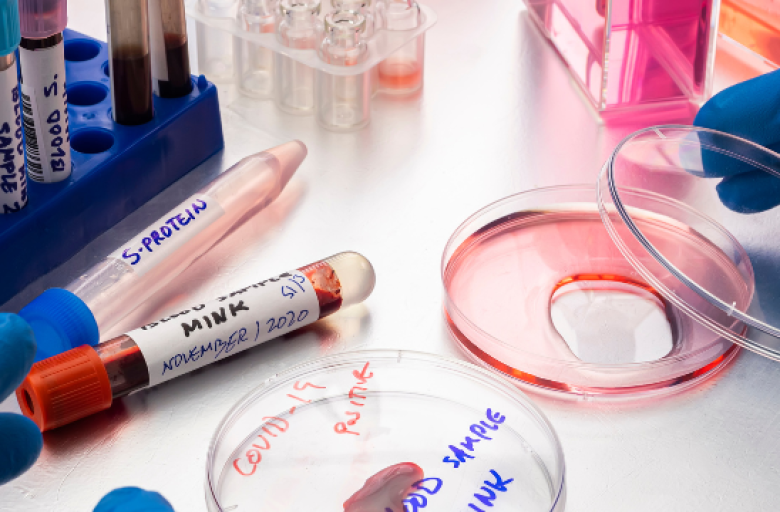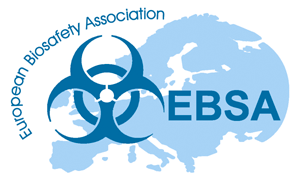Upcoming EBSA courses
-
 14 May 2024
14 May 2024Pre conference course D - Mastering BSL-3 Laboratory Operations Throughout Its Lifecycle: Overcoming Challenges at Every Stage
AntwerpRead moreMastering BSL-3 Laboratory Operations Throughout Its Lifecycle: Overcoming Challenges at Every Stage.
-
 14 May 2024
14 May 2024Pre conference course B - Auditing: a comprehensive and practical introduction
AntwerpRead moreThis two-day practical course provides a comprehensive and sound practical introduction to auditing. The course takes participants through the principles, recognized best practices and essential techniques of (HSE / biosafety) auditing. It provides them with guidance on planning and performing of an audit in line with international standards.
-
 14 May 2024
14 May 2024Pre conference course A - Biological Risk Assessment – from paper to practice
AntwerpRead moreIt is known that human reliability and behaviour have a major impact on an individuals ability to work safely in a laboratory; and yet these same factors can be overlooked when assessing the risks in that laboratory. This pre-conference course will take your risk assessments to the next level through ensuring that human reliability is accounted for in risk assessments and introduce the concept of safety critical task analysis.
This pre-conference course is aimed at those individuals who are already risk assessors or understand the risk assessment process and provide attendees with the skills and knowledge to complete safety critical task analysis. It will not only consist of theory sessions on risk assessment and human reliability but also a visit to teaching laboratories at ITM and so taking the biological risk assessment process from paper to practice.
-
 14 May 2024
14 May 2024Pre conference course C - Field Biosafety perspectives on One Health: From sampling multiple species to working in a Mobile Lab
AntwerpRead moreWhen outbreaks of high-risk viral pathogens strike, aspects of laboratory diagnostics or research are often performed directly in the field, at the epicenter of the epidemic. What then, are the required biosafety precautions to apply and how can they be implemented under challenging conditions?
-
 15 May 2024
15 May 2024Pre conference course G - Safety equipment in contained laboratories: from the biosafety cabinet to individual protection, a practical approach
AntwerpRead moreAfter introducing the basic concepts about individual and collective equipment, the training will focus on biosafety cabinets (BSC) with particular attention to defining the protection range and differences of each type of BSC. Factors affecting the effectiveness of the BSC (misuse, location, etc.) will be highlighted through a technical demonstration. The first part of the course will also describe some ways to decontaminate the BSC work surface and HEPA filters. The second part of this course will cover personal protective equipment, focusing on the main properties of masks and gloves. Beside explaining the criteria to consider when selecting the appropriate PPE, the training will use practical approaches to raise awareness of poor practices that could compromise the effectiveness of the PPE.
-
 15 May 2024
15 May 2024Pre conference course H - Key challenges to assessing training & competency
AntwerpRead moreThe course will provide the information to understand how adults learn and apply this to strategies for training and assessing competency. During the course, instructors will explain the key challenges to training adults, how to understand learning preferences and identify training needs of individual or groups. In addition to that, participants will learn how to define and assess competences and how to analyse the suitability of a trainer.
-
 15 May 2024
15 May 2024Pre conference course I - Synthetic Biology; from Mainstream to Counterculture – Theory, Practice & Safety
AntwerpRead moreThe course will provide an overview of the field of Synthetic Biology, ranging from mainstream developments, and applications, to the alternative DIYBio movement. Case studies will be used to illustrate key mainstream advancements in whole cell modelling, live synthetic cells, synthetic DNA, and CRISPR genome editing. The impact of biohacking and the garage biology movement will also be discussed.
The course is designed as an introduction to the field of Synthetic Biology for non-experts, and will be delivered through a mix of lectures, supporting videos and participant discussion.
